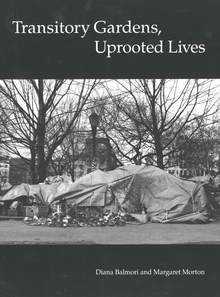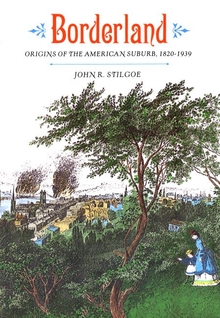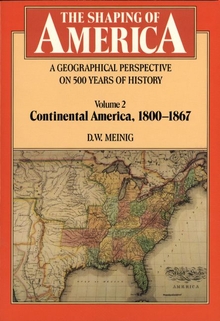Out of Place
WARNING
You are viewing an older version of the Yalebooks website. Please visit out new website with more updated information and a better user experience: https://www.yalebooks.com
Restoring Identity to the Regional Landscape
Michael Hough
Out of Print
"This is a very important book indeed. It includes not only theory but also copious practical illustrations drawn from Hough’s varied and extensive professional practice. The book will appeal to architects, landscape architects, and practical planners, as well as to an academic and broader audience concerned with human diversity and environmental aesthetics."—Barrie B. Greenbie
"The wonderful thing about Michael Hough’s approach is its depth, below surface appearances, into the truly vital and shaping realms of process, place, ecology, and aesthetic philosophy. What he is doing is not only important intellectually in our work with cities but can actually be translated into regulations, policies, and design."—Jane Jacobs, author of Cities and the Wealth of Nations
"The value of [Hough’s] book lies . . . in the care with which he articulates his thesis and illustrates it with dozens of photographs."—Washington Post Book World
"It’s amazing that ideas as down-to-earth as Hough’s need to be spelled out in a book like this. One would have expected they were basic assumptions of design experts. As Hough makes clear, however, this is a profession that can’t see the truth for the theory."—Christopher Hume, The Toronto Star
"In this analysis of the contemporary landscape, the landscape designer author offers his own, sometimes outspoken views about why the industrial landscape has no real identity of its own, and which direction architects and urban planners should apply themselves to changing this state of affairs."—Abitare
"Since I regard Michael Hough’s City Form and Natural Process as one of the best landscape books of the past decade, I opened this book with considerable interest. . . . The author, in my opinion, makes his stand in the right place with the last sentence in his book: ’Eutopia (good place) not Utopia (no place) is the goal toward which we must strive’. . . . We must become more expert in consulting the geniuses of places, and in preparing designs in full response to existing conditions, to all land users and to the interests of fauna and flora. Michael Hough’s books are of great assistance in this task."—Tom Turner, Landscape Design
"Hough examines both the forces that create a sense of place and the reasons why many cities, suburbs, agricultural, and industrial landscapes share a growing and monotonous sameness. The book is structured into eight chapters that flow logically, building to a provocative prescription for regional design. . . . Hough’s book is insightful and thoughtful. . . . The writing is lucid, popular, and personal without being cloying. The numerous photographs are a good idea. . . . The book is a welcome and fresh addition to the body of literature on regional planning and landscape design. And given the growing interest in topics such as sustainable development, alternative tourism, and cultural pluralism, Out of Place is a thought-provoking examination of how these popular notions might be translated into the everyday landscapes in which we work, play, and live."—Stephen L. J. Smith, Journal of Applied Recreation Research
"Hough’s discussion of how we perceive and respond to different places, be they naturally or culturally formed, displays an engaging directness. . . . [His] approach is refreshingly qualitative, a guide of sorts to better viewing, understanding and appreciating our surroundings. . . . A reasoned plea to embrace and protect the elements of our natural and man-made environments that generate color and character—that make them unique—be they a grove of oaks, a stretch of beach, a canyon view, an ethnic enclave, or a landmark building. It is these things that lend a land and cityscape memory, and life."—Sam Hall Kaplan, Los Angeles Times
"The chief attraction of this scholarly yet highly accessible work is the pleasure of seeing the familiar through the eyes of a passionate specialist."—Amanda Heller, Boston Sunday Globe
"It ought to be required reading for all architects and planners."—Loyd Grossman, Literary Review
"This is a handsome, well-presented book, well written and packed with interesting and instructive illustrations."—Winter Cities Design Review
"[A] thought-provoking book."—Andrew Saint, Times Literary Supplement
"A book likely to provoke planners and environmentalists alike. . . . Well written, and illustrated with numerous black-and-white photographs, Out of Place deserves to be read and debated by all who care about what place truly means."—Wilson Library Bulletin
"[An] important new book. . . . This book presents an enriching exposition of direction for the future, and will be useful to educators, planners, urban designers, landscape architects and architects."—Elsa Leviseur, The Architectural Review
"Atlas of Columbus is an altogether absorbing monograph of an inquisitive moment in history. Mebenzahl has shown that a purposefully selected group of maps can be so much more than simply showy artifacts for a gallery."—Thomas F. Mcilwraith, Canadian Geographer
"Well-written and uses many pertinent, comparative examples."—George Hemmens, Journal of Planning Education and Research
"Highly readable and coherent text. . . . The writing style is conversational, and Hough uses personal anecdotes as well as many case studies, complete with photos and sketches, to illustrate his points. . . . Out of Place represents a worthwhile addition to the designer’s body of knowledge."—Mark Seasons, Canadian Journal of Urban Research
"A useful addition to the library of any geographer or planner concerned with the degradation of contemporary cultural landscapes."—John E. Harmon, Professional Geographer
"A very fine book. . . . There is an explicit awareness of ecological imperatives and the need for human-directed effort towards the creation of conditions for ecological sustainability and the ethical framework needed to maintain them."—Environmental Politics
Publication Date: March 11, 1990







